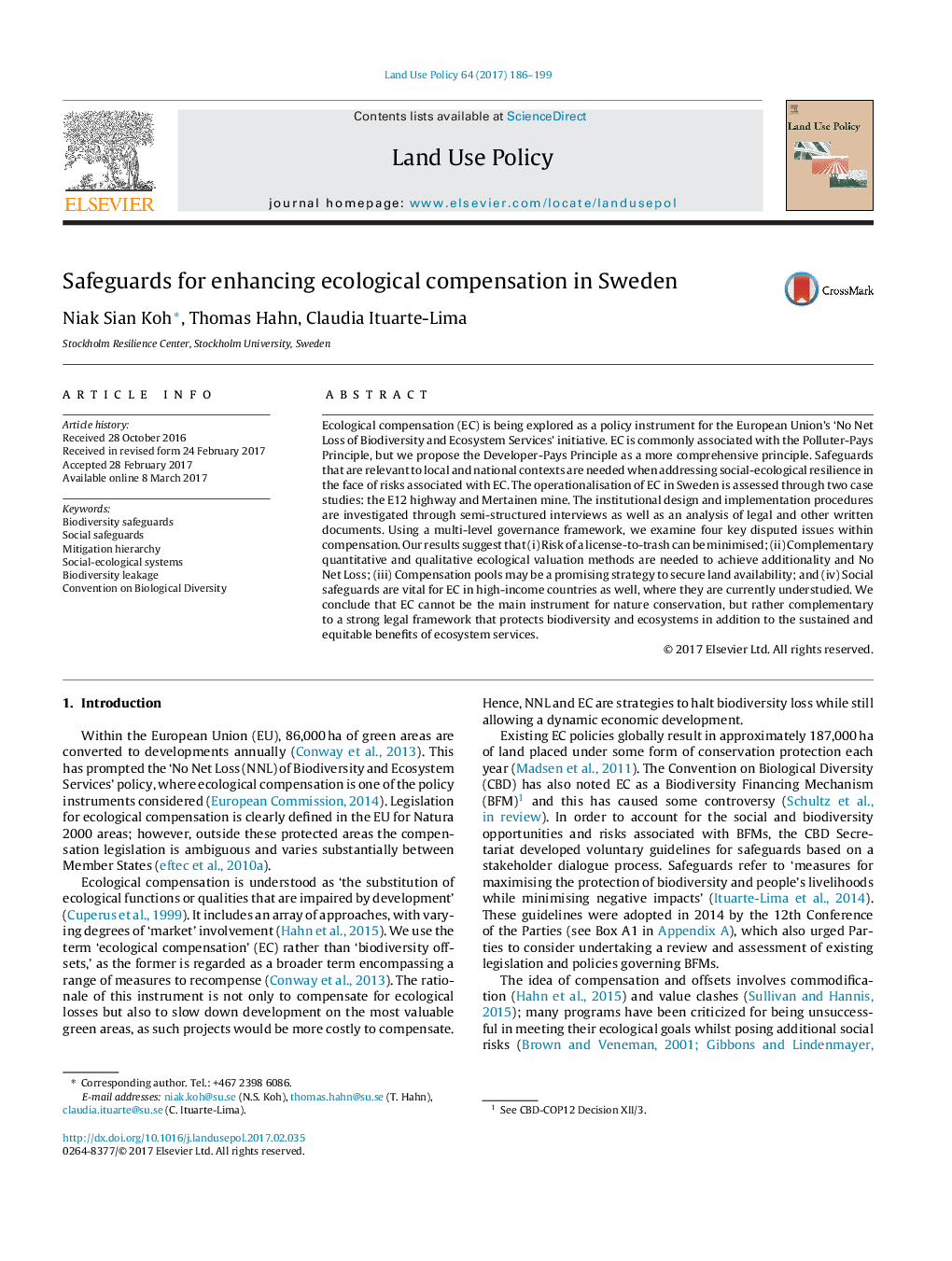| Article ID | Journal | Published Year | Pages | File Type |
|---|---|---|---|---|
| 6460821 | Land Use Policy | 2017 | 14 Pages |
â¢Two case studies reveal ecological compensation (EC) in practice in Sweden.â¢Compensation legislation must apply to roads and urbanisation to achieve No Net Loss.â¢EC in Sweden is ad hoc; no standards for quantitative and qualitative valuation yet.â¢Compensation pools may be a promising strategy to secure land availability.â¢EC social safeguards are vital and intertwined with human rights but are understudied.
Ecological compensation (EC) is being explored as a policy instrument for the European Union's 'No Net Loss of Biodiversity and Ecosystem Services' initiative. EC is commonly associated with the Polluter-Pays Principle, but we propose the Developer-Pays Principle as a more comprehensive principle. Safeguards that are relevant to local and national contexts are needed when addressing social-ecological resilience in the face of risks associated with EC. The operationalisation of EC in Sweden is assessed through two case studies: the E12 highway and Mertainen mine. The institutional design and implementation procedures are investigated through semi-structured interviews as well as an analysis of legal and other written documents. Using a multi-level governance framework, we examine four key disputed issues within compensation. Our results suggest that (i) Risk of a license-to-trash can be minimised; (ii) Complementary quantitative and qualitative ecological valuation methods are needed to achieve additionality and No Net Loss; (iii) Compensation pools may be a promising strategy to secure land availability; and (iv) Social safeguards are vital for EC in high-income countries as well, where they are currently understudied. We conclude that EC cannot be the main instrument for nature conservation, but rather complementary to a strong legal framework that protects biodiversity and ecosystems in addition to the sustained and equitable benefits of ecosystem services.
